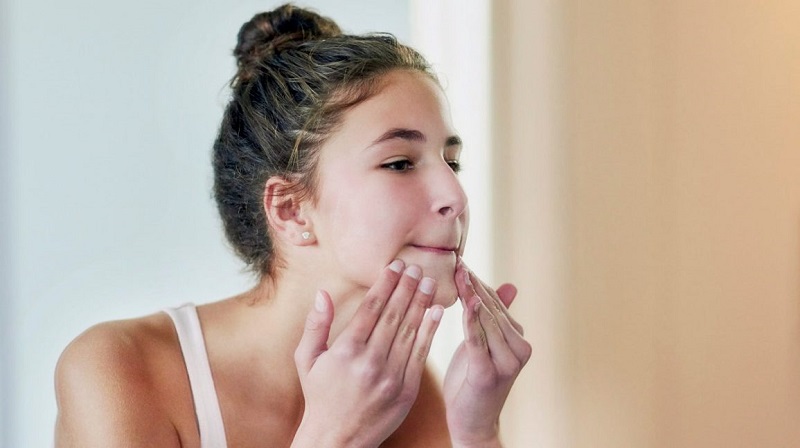No products in the cart.

The skin is one of the most important organs in our body. It protects us from the elements, regulates temperature, and provides a surface for other bodily functions to happen. When it starts to break down, whether, through disease or poor hygiene habits, you become more susceptible to getting sick and experiencing problems with your general health. The best way to avoid these issues is by maintaining healthy skin that can fight off infection naturally. One of the first things you should do when noticing that your skin isn't looking right is to see your dermatologist who can diagnose any potential skin condition and recommend treatment options if necessary. If you're only dealing with acne, then there are some great over-the-counter products available that contain benzoyl peroxide which will attack the bacteria on your skin to unclog pores by removing dead skin to prevent blockages.
Acne is a common skin condition that affects the face, chest and back. Acne typically occurs during puberty, when hormone levels increase and oil production in the skin increases. The increased oil production clogs pores on the surface of the skin with sebum (oil) and dead cells. Pores can get inflamed or infected if bacteria gets trapped inside them. Acnea often begins to improve after age 18 as hormones start to stabilize and normalize. There are many effective علاج حب الشباب (acne treatments) available at your dermatologist's office or over-the-counter in drugstores including benzoyl peroxide, sulfur masks, topical retinoids, antibiotics or oral medications like birth control pills for women who suffer from hormonal breakouts due to their menstrual cycle.
Acne can be a tricky condition to treat. Here are some tips on how to get the best results from your treatments:
Skin conditions are not only uncomfortable, they can also be difficult to diagnose. It is important to know what the different skin conditions look like so that you can take steps towards diagnosis and treatment. Below are some of the most common signs of various skin conditions:
1) Acne - pimples on face with whiteheads or blackheads; redness around acne lesions; may occur in areas where oil glands are concentrated such as forehead, chin, and chest; oily skin or scalp may precede acne breakouts by weeks or months.
2) Eczema - Eczema is a chronic skin condition where the immune system attacks healthy cells. The result of this attack are itchy, red patches on the skin that are often dry and cracked. It can be difficult to identify what eczema is at first because many people experience different symptoms. In order to properly diagnose an individual's suspected case of Eczema, there are certain things that must be considered such as location and severity of rash, age when rash began appearing, any family history of allergies or autoimmune diseases, and if there has been a recent change in environment or medication usage.
In order to stay healthy, it's important to take care of your skin.
1) Wash your hands & face twice a day with a gentle cleanser and soft cloth or towel.
2) Avoid touching your face and drink water
3) Stop smoking cigarettes
4) Exfoliate at least once a week to remove dead cells which can clog pores and lead to breakouts.
5) Apply sunscreen daily when you're outside so that your skin can stay protected from the sun's harmful rays, which is one of the leading causes of wrinkles!
Acne can be a difficult skin condition to treat, but it is possible with the right ingredients. Whether you have mild or severe acne, there are certain treatments that may work for you.
1) Lemon- To make a concoction of lemon juice and honey, mix one tablespoon each into a bowl until it becomes thick enough to apply onto your face as an overnight mask. The acidic nature of lemon juice removes dead cells from your pores, which prevent clogged pores and blackheads
2) Baking Soda- Mix baking soda with apple cider vinegar until it forms a paste, then apply on problem areas after cleansing your face then leave it on overnight or throughout the day. Finally rinse with warm water.
We all know that acne can cause emotional distress for anyone who has to deal with it. The condition is something that may be embarrassing or even debilitating, but there are ways to get rid of acne and control the outbreaks if you have them. Our blog post covers everything from what causes acne in the first place, how hormonal changes affect breakout frequency, and what treatments work best when dealing with these breakouts.
